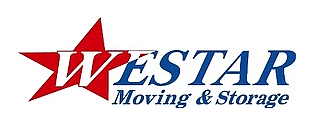 Westar Moving and Storage
Westar Moving and Storage  Budget Movers
Budget Movers  Willis Permian Movers
Willis Permian Movers  Corpus Christi Transfer
Corpus Christi Transfer  Admiral Storage and Van
Admiral Storage and Van 
Moving Guides
Frequently Asked Questions
If you are trying to plan a move in or around San Antonio, it is easy to assume every relocation works the same way. Boxes go in a truck, furniture gets wrapped, and you end the day in a new place. The truth is that local vs long distance moving can feel like two completely different projects once you get into scheduling, pricing, and how much room for error you actually have. Getting clear on the differences early helps you avoid surprise costs, missed deadlines, and the kind of stress that turns moving week into moving month.
Not if it is a non-binding estimate. Make sure all estimates are in writing. The estimate must clearly state whether its non-binding or binding. If it is a binding agreement, they are legally obligated to follow the estimate. Remember, a mover is under no requirement to make an estimate for the shipper, so be sure to ask for a written estimate.
- Be present until your furniture is loaded.
- Look at the mover’s description of your furniture on the inventory and ensure the mover denotes items that are chipped, marred, dented, scratched, etc.
- Make certain the condition of them items are listed on both the driver’s copy and your copy of the inventory sheet, and more importantly on the driver's copy. Make certain all goods to be moved are listed on the inventory sheet.
- Do a final walkthrough of your home before the driver leaves. Check closets, drawers, cabinets to make sure that no items were missed during the packing and loading process. If you find items that were not packed/loaded, please bring it to the drivers attention before signing off on any paperwork.
In this day and age, it’s important to ask how the moving company is mitigating coronavirus health risks. Given that the virus spreads mainly through person-to-person contact, its absolutely vital that the movers use personal protective equipment when handling your belongings. Our drivers and crews are required to wear PPE and have a form that will need to be completed confirming that they did wear their protective equipment.
Not everything will be allowed onto the moving truck. Your moving company should provide you with a list of non-allowables. If they do not, ask. Items that are typically not allowed on a moving truck include anything that is flammable and hazardous, such as poisions, scuba tanks, propane tanks, lamp oil, matches and aerosols. Perishable items, such as refrigerated food and plants, are often not allowed on moving trucks as well. In addition, sentimental and important belongings simply do not belong on a moving truck. These may include photo albums, cash, birth certificates and heirloom jewelry. All of these items should be moved by you personally.
In summer, when it is a busy season in the moving industry, longer lead times are required to schedule your move. If your move is scheduled between June and August, give your moving company 6-8 week's notice. You are much more likely to get a great move if you plan ahead!
Simply put, they are more accurate! The quote you receive is an estimate. Meaning your actual costs could be more or less depending on the weight or how long your move takes. When you have a no obligation in home survey the Certified Move Consultant knows exactly what to look for. They are trained to know how long things take and how many boxes will be needed to pack your home. Online estimates are great for a rough estimate, to see if hiring a professional move is within your budget and are as accurate as you are in filling out the inventory.
For local moves, lightweight clothing may be left in the drawers. Do not fill drawers with heavy items such as books or bricks because it can damage the furniture during transit. Also, make sure to remove valuable of fragile items to be packed properly and ensure safe arrival to your new home.
We need the basics: Who, what, when and where.
- Who: Your contact information and a backup, in case you are unreachable during part of your move.
- Where: Current and new address; or if you will be going into storage. These are important details because it will dictate how we handle your items and prepare them for your move!
- When: Are you closing on the house, have a lease expiration that mandates your move date? We need to know!
- What: This is where the survey or inventory form comes in- we need to be prepared with materials, labor and a large enough truck based on what you need moved.
All charges are required to be paid prior to delivery to your new home (unless prior arrangement have been made with your moving company). Most moving companies accept cash, money orders, traveler’s checks, cashier’s checks and major credit cards. Personal checks are not accepted.
YES, definitely. Our Certified Move Consultant does communicate all the details you have shared with them but since things can change during a move, our teams are trained to confirm things and follow the directions of YOU, the customer! You will also need to do a walkthrough, sign off on the paperwork, which includes the inventory sheets, the high value form and make sure that nothing was missed!
You are protected! When you receive the estimate from your Certified Move Consultant, it will show different pricing based on the level of protection you later chose. In a nutshell, there are two types of coverage. Full value protection and released value protection. Although full value will cost you more, it is well worth the peace of mind it provides. Release value protection is the alternate. While it comes at no cost to you, it limits our liability to .60 per pound, per article.
- First let the driver know if they are still there.
- Contact your move consultant.
- Fill out the claims form as soon as possible and return it to your move coordinator. You are on a limited time frame and will need to get the form returned as quickly as possible.


